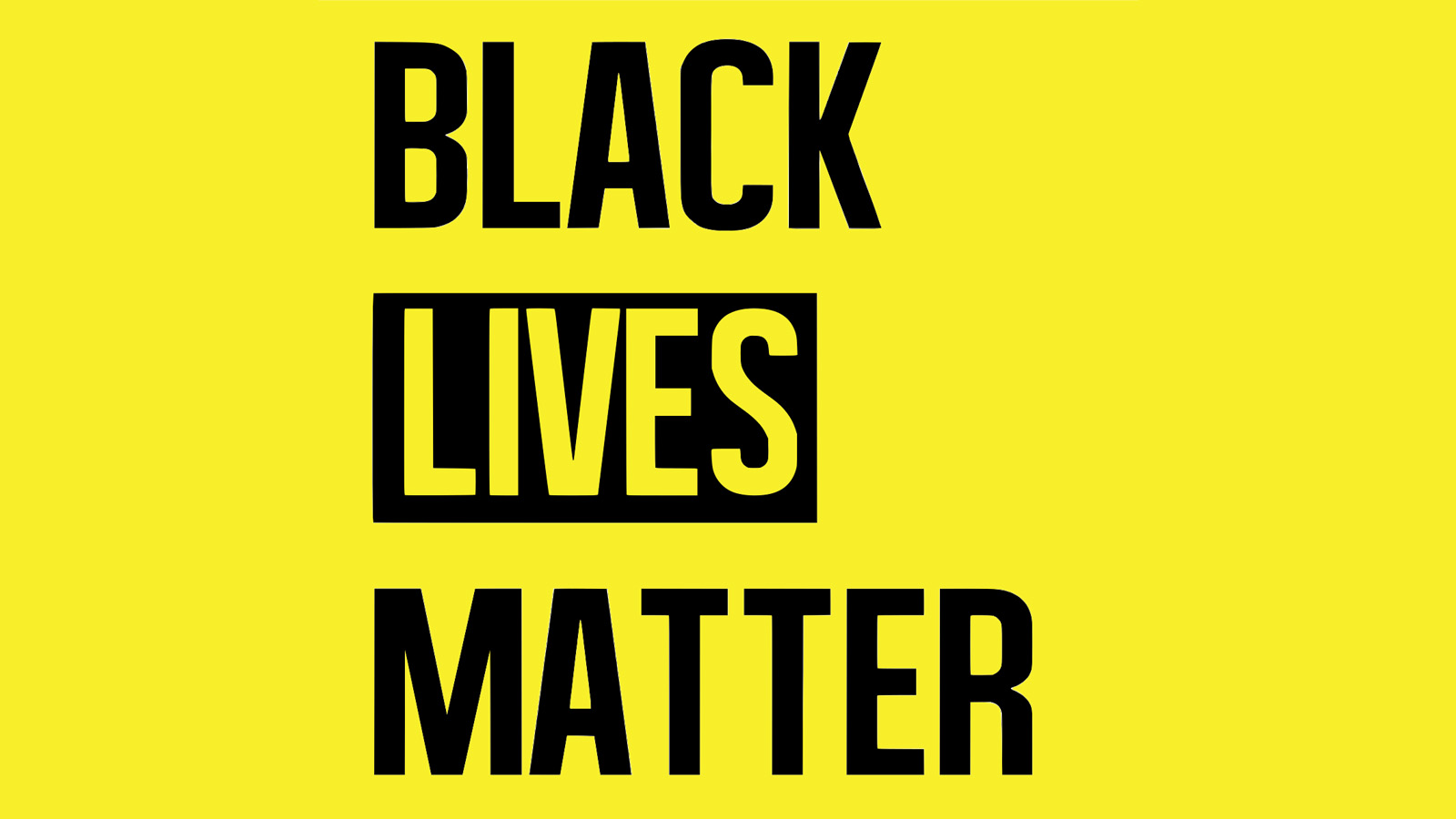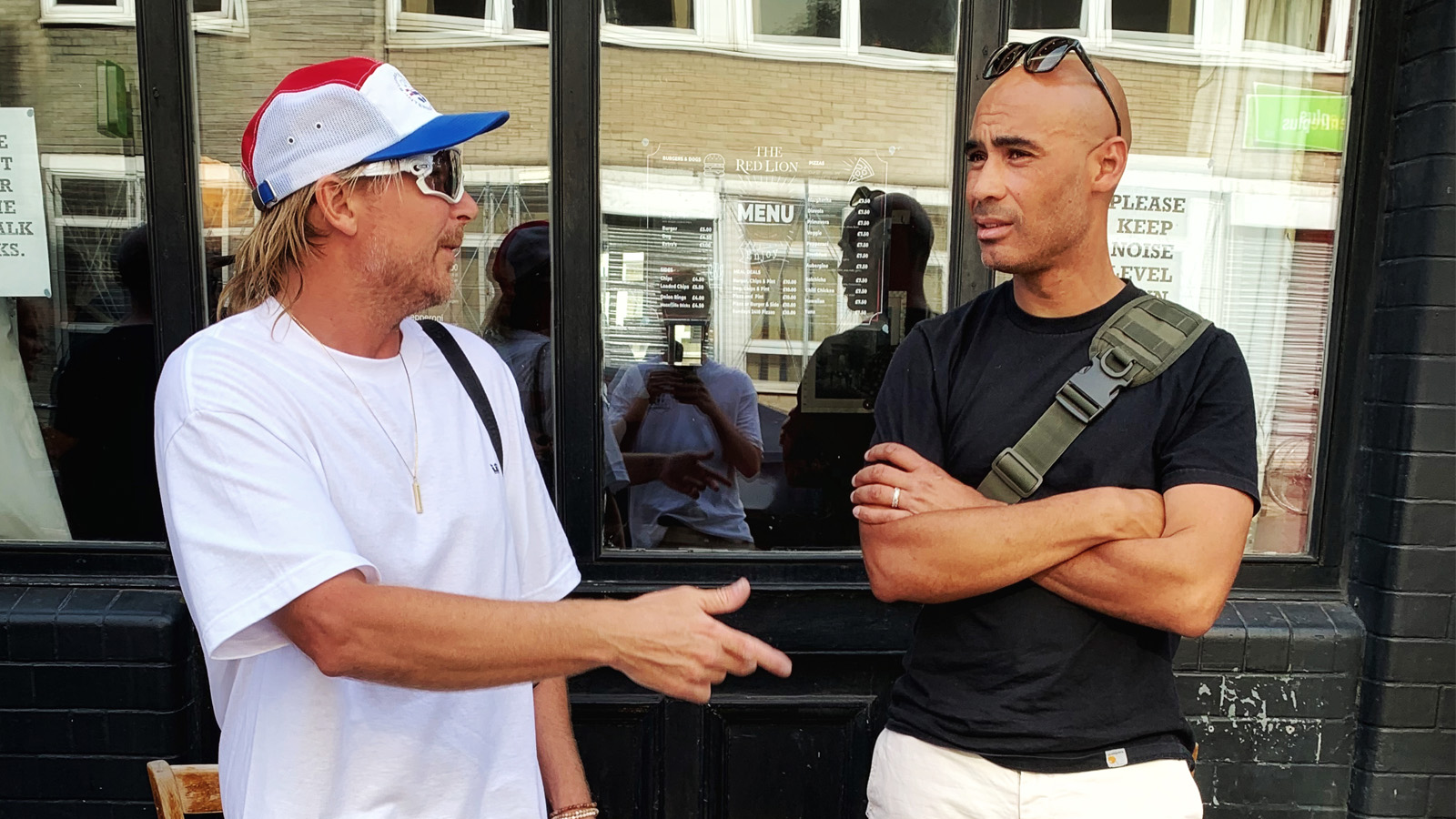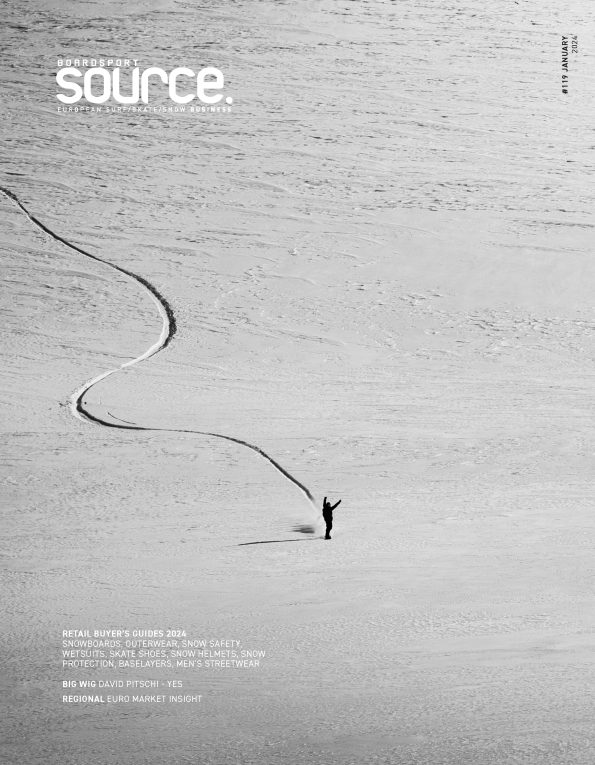
First Steps: Striving For A More Diverse Boardsports Industry
In our Editorial for Issue #101 we outlined our plan to tackle the severe lack of ethnic diversity in the boardsports industry. Taking our first steps towards promoting and supporting the Black Lives Matter movement, one of the UK action sports industry’s few black employees Phil Young has helped kick things off by providing context for the boardsports industry, setting a baseline from where we can grow.
Phil Young is Co-Founder of The Outsiders Project, an agency designed to diversify the outdoor through access, knowledge and representation. Phil has a rich history within the action sports community serving many global brands as Co-Founder of Urb-Orbi and Director of Mighty Meaty (TCO).

Chad Muska and Phil Young
All lives matter.
It’s an interesting response isn’t it.
It’s kinda like saying “all animals matter” when a guy hands you a ‘save the rhino’ flyer or, “what about Alzheimer’s?” when a cancer research ad comes on the TV, yet this is what we often hear in response to the Black Lives Matter movement.
I think I understand the emotions behind it; people have been comfortably travelling through their lives only to find out that, not only was the history they were taught a lie, but people who have a different skin colour are claiming they have been dealt a bad hand and want a new pack. This is troubling if you are holding all the aces and face cards, so it comes as no surprise that there are folk out there who respond with, but what about me?
Just to put this into context, I’m black, and subsequently probably experienced life in a way that’s a little different than yours. Not chalk and cheese different, I mean I’ve had more than my fair share of powder days and ridden mile long ditches in the desert just like in videos. I’ve even been taken to some super secret surf spots where I’ve totally failed to catch a single wave, but different none the less. I probably get stopped by the police more than is strictly necessary and the welcome I receive in certain European countries is often on the frosty side, even just getting through passport control can require a two- or three-hour buffer zone. The way I need to navigate life on a daily basis is simply different to my white colleagues, in the same way as it might be for them if they were to be placed in Rwanda – you learn to live with it. You understand that sometimes it’s better to let your white friends do the talking, to tolerate people telling you exactly why they aren’t racist, to celebrate Ubers because black cabs won’t pick you up and to look through the windows of pubs before you go in. The fact is I have very few friends in the outdoor scene who look like me and, with the exception of skating, rarely see a black face gracing the pages (digital or otherwise) of action sports titles or in the ads of our communities’ favourite outdoor brands. Any representation I do see tends to be clumsily set against a backdrop of steel and concrete; a dirty, gritty urban landscape full to the brim with the overtones of inner-city struggle. Conscious intent or not, these images serve to keep us in the city, rather than to tempt us out.
Black Lives Matter. There, I said it again and yet for some reason it doesn’t seem to apply in the outdoors. The argument I hear from the industry is that we hold up a mirror to the consumer and represent what we see. On the face of it this makes a kind of sense, we don’t want to alienate the consumer, right? Don’t want to mix politics with sport, ahem, Olympics. There aren’t enough talented riders to warrant giving column inches or photos anyway – that coverage needs to be earnt, doesn’t it. And anyway, with such small numbers what are we actually gaining? What I translate from all of this is that as an industry we don’t want to have a conversation that we know is likely to conflict with our beliefs and ultimately force us to review our business.
Before I attempt to answer why I think this is a conversation worth having, it’s first worth being aware of some of the historical issues that are at play here. I was born and live in the UK so will frame it from an Anglocentric perspective. The chances are if you are black or brown living in the UK the reason you are here is in some way connected to the imperial ambitions of Britain, dating back to the late 16th century. This was by no means a solely British push for world domination; France, Belgium, Spain, Germany, Portugal, The Netherlands and more, all had a crack at expanding their territories by systematically smashing their way into foreign kingdoms to impose their rule. All of them were knee deep in the slave and butchery game, stealing resources as they found them and planting their flags whenever they saw a land worth owning. On their way they carved up the continent of Africa sharing its riches between themselves and creating a heap of a mess that is still a long way from being sorted. The citizens of these new territories by default became British or French etc, and were called upon during the first and second world wars to both fight and help build up the countries in their aftermaths. To this end in the late 1940s to early 1970s the UK found itself with Africans who were initially shipped to work as plantation slaves in the Caribbean, then shipped to London to work in transport and service industries, albeit voluntarily. Asian communities from various countries were scattered around the UK taking jobs in textiles and retail. At its peak and before its ultimate collapse, the British Empire spread across 25% of the world. Even today there are 14 overseas territories where citizens hold British Passports. Currently the UK is estimated to have over 8 million Britons who Identify BAME (Black, Asian or Minority Ethnic).
“Since our first arrival 70 or so years ago this has led to us generationally losing touch with what it means to be connected to rural and natural environments. We have instead built lives and cultures around spaces in which we live and feel comfortable, where we see familiar faces. The ‘urban’ label we are so often tagged with is not of our choosing, it is a result of being excluded from country landscapes.”
What has this to do with backside airs? Couple of things. Over the years housing regulations and race relations legislation has meant that 97% of the UK BAME population live in cities. Since our first arrival 70 or so years ago this has led to us generationally losing touch with what it means to be connected to rural and natural environments. We have instead built lives and cultures around spaces in which we live and feel comfortable, where we see familiar faces. The ‘urban’ label we are so often tagged with is not of our choosing, it is a result of being excluded from country landscapes.
Like the majority of humans in today’s consumer culture we are influenced and guided by brands and media, we all do what we’re told by the marketeers in big buildings even though we think we’re being independent. Our place in the city has been reinforced to include the spaces we are supposed to inhabit, the clothes we should be wearing and as far as this conversation is concerned, the sports in which we are allowed to participate. We don’t go into nature because we are repeatedly told it’s not for us, it’s a white person’s place, we don’t bother. After all, why would you put yourself in a space where you’re neither invited nor represented when you have a tough enough time getting by in the city?
“To say that POC (People of Colour) simply don’t like surfing or snowboarding is as ridiculous as suggesting that white people don’t like hip hop.”
Boardsports emerged out of a counterculture, where the values were a shared feeling of being stoked and of discovering new places in which to explore what was possible. It was based on fun, comradery, subversion, smiles. Flick through the pages of some outdoor related titles today and you could easily be mistaken for thinking you were reading an auto mag such is the focus on technology and performance, with tricks and equipment beyond the realms of us punters, regardless of ethnicity. If we are trying to entice a new audience in order to grow business and customer base it’s worth considering what new narratives can be employed, ones perhaps that hark back to those original beliefs of fun and adventure. It is entirely feasible that the same old stories of far off places where white men battle nature in expensive breathable fabrics to go to conquer yet another peak or wave or (insert alternative outdoor trope here…), may just not be doing it for everybody. While you think about this, also understand that to truly engage with new communities, their faces need to be visible in an authentic and aspirational way. This doesn’t mean excluding white faces but it does mean giving those that have been denied access for so long a bit of a leg up.
To say that POC (People of Colour) simply don’t like surfing or snowboarding is as ridiculous as suggesting that white people don’t like hip hop. Take a look at Thrasher’s SOTY list to see the variety of colours that prove that non-whites enjoy and excel in boardsports as much as the next man or woman.
The Black Lives Matter movement has helped galvanise the thinking of the black community. We are scrutinising the way we are portrayed in the media and re-evaluating what we are prepared to accept. We are also starting to realise that if we can’t rely on your support we are going to do it ourselves. We are starting to discover the outdoors off our own backs, through an enlightened understanding of the healing properties and wonder of nature. We have formed groups such as Black Cyclists Network, Black Girls Hike and Black Girls Surf, the list is growing by the day, as is our voice. We are looking at the outdoors from a new perspective and you can guarantee that as we mobilise, product and events will naturally follow, as will the side-lining of brands and institutions that haven’t included us within the conversation. Whether we like it or not our culture has been globalised and, spoiler alert, the whole world doesn’t look the same.
Although I believe that boardsports participants and its industry are no more racist than that of the general population, we must remember what enabled the Western World to be in the position where our industry was possible in the first instance – the enslavement, subjugation, murder and profit off millions of people who weren’t white. To even attempt to undo this we must confront the issues at both an individual and societal level, with an acknowledgement that if you aren’t doing something to create change, you are complicit in the inequalities that currently exist. Make no mistake, you will find it painful and uncomfortable as it will likely expose some buried bias as you un-pick your learnt prejudice.
“Casting your recruitment net a bit further might help, might give you a better understanding of black people if you actually have some people in your company who are black. And no, the guy that drives the fork-lift in the warehouse or the cashier isn’t what I’m talking about.”
But this is a good thing, after all we no longer rely on the objectification of women’s behinds to sell flip-flops and the world still turned. Riders with missing limbs are recognised and celebrated for their performance regardless of their ability. The barriers of size, age and class are all being addressed, so surely race and ethnicity shouldn’t be too hard to tackle. Casting your recruitment net a bit further might help, might give you a better understanding of black people if you actually have some people in your company who are black. And no, the guy that drives the fork-lift in the warehouse or the cashier isn’t what I’m talking about.
As a boardsports community I feel we must make a stand to confront and call out racism whenever it rears its head, be that in conversations at the pub, decisions in the boardroom, altercations in the line-up or yes, in the social media comments made by our chosen sporting idols. To not do so is not only morally questionable, but also serves to further alienate a growing black and brown middle class looking for somewhere frivolous to spend its money.
As stated in our #101 Editorial, “Only by creating a more outwardly welcoming, inviting and diverse offering can we expect to see a more diverse future for boardsports. Please get in touch with me to help further the conversation.”




